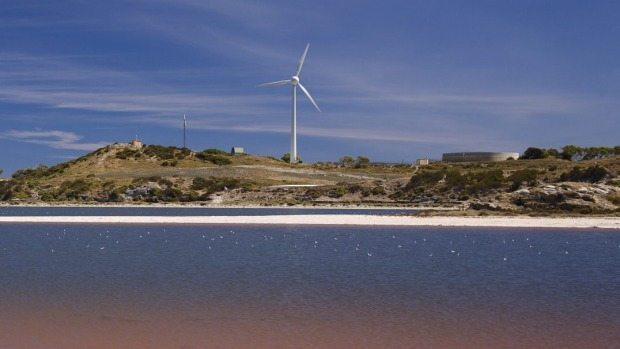
Hydro Tasmania is to add 600kW of solar PV and some smart controls to Rottnest Island, helping the tourism resort supply 45 per cent of its electricity and desalinated water from renewable energy.
The new installations will supplement the single 600kW wind turbine, the machine that generated considerable notoriety when it was revealed it was the single wind turbine that former prime minister Tony Abbott had ever been close to, and led him to declare that wind turbines were “ugly”, not to mention ineffective and possibly the cause of health problems.
 In a move laden with irony, the institution that Tony Abbott tried to dismantle, the Australian Renewable Energy Agency – now favoured by the new Turnbull administration – is to invest $4.8 million to expand the renewable energy facilities on the island.
In a move laden with irony, the institution that Tony Abbott tried to dismantle, the Australian Renewable Energy Agency – now favoured by the new Turnbull administration – is to invest $4.8 million to expand the renewable energy facilities on the island.
Hydro Tasmania says it will use some of the smart controls that has allowed it to considerably reduce the use of diesel on King Island, in Bass Strait, to make a similar achievement on Rottnest, which is situated 18 ams off the coast from Perth.
The company says the Rottnest Island Water and Renewable Energy Nexus Project (WREN) will deliver both electricity and drinking water for Rottnest Island at lower cost, and with lower emissions, through innovative use of renewable energy and smart controls.
Until now, Rottnest Island’s current annual power consumption of 5 GWh has been provided by five conventional diesel engines, two low-load diesel engines and the single 600kW wind turbine, installed in 2004, that Abbott hated so much.
“Like many remote or island locations, Rottnest Island is currently heavily reliant on expensive diesel fuel to supply its electricity needs,” said Simon Gamble, Hydro Tasmania’s manager of hybrid off-grid solutions.
“A novel aspect of this project is its focus on controlling the timing of an energy-intensive activity – running the island’s desalination plant – to make the best use of renewable energy when it is most abundant.
“Sophisticated smart controls will automate the desalination plant to operate at maximum capacity when wind and solar energy are most abundant, and store treated water for use at times of lower renewable energy availability.”
ARENA, which will provide up to $4.8 million in funding towards the $7.3 million project, says the high cost of shipped-in diesel presented a compelling case for island communities to make the switch to renewable energy.
“Integrating Hydro Tasmania’s innovative control systems with the Rottnest Island desalination plant and water storage facility will allow the plant and pumps to be switched on when renewable generation outstrips demand on the island,” ARENA CEO Ivor Frischknecht said.
The CEO of the Rottnest Island Authority, Paolo Amaranti, said reducing the amount of diesel used on Rottnest Island makes sense not only from an economic perspective, but also as part of the island’s long-term focus on sustainability..
Gamble says the WREN project holds exciting global potential, as similar power and water challenges confront many remote and island locations around the world.
“Island communities in particular will watch its progress with interest, given the widespread current use of diesel to manage water treatment and desalination.”
The project will be completed by May 2017.
Environment minister Greg Hunt also issued a press release about the project. Hunt has yet to remove legislation that calls for ARENA, and the Clean Energy Finance Corporation, to be dismantled.
Giles Parkinson is founder and editor of One Step Off The Grid, and also edits and founded Renew Economy and The Driven. He has been a journalist for 35 years and is a former business and deputy editor of the Australian Financial Review.
